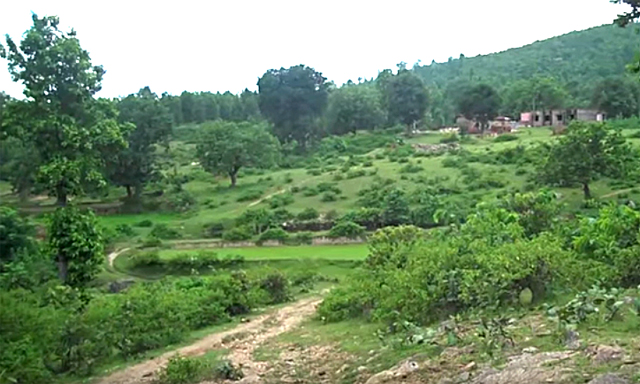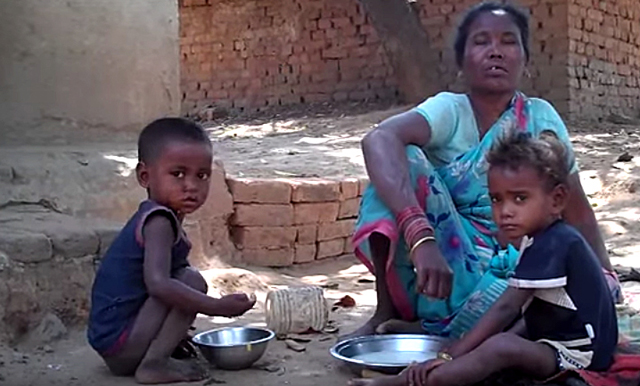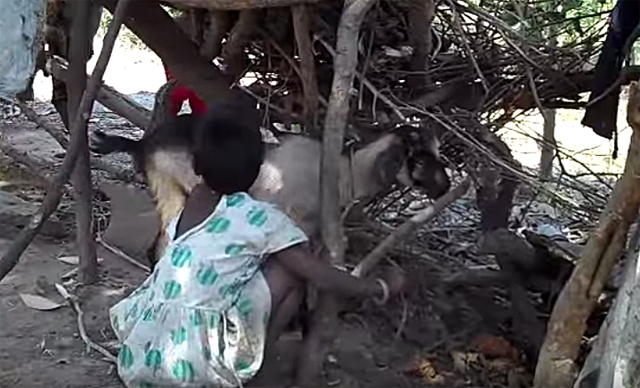On Sunday last week a Birhor woman gave birth to her fifth child and, desperate about feeding her growing family, she sold the infant to a businessman from a neighboring district. The story was picked up by numerous news services in India, each of which varied a bit from the others in some of the details. However, the Hindustan Times sent two reporters to the woman’s village to interview her and talk with other villagers in order to find out what had really happened.

The story has some of the depressing hallmarks of the novel The Mayor of Casterbridge, the tragic tale of an Englishman who sold his wife and child in a drunken rage one night, but it may have a happier ending than Thomas Hardy’s story did. It seems as if Ms. Aano Devi’s husband had died six months ago, leaving her with four children to raise in the Birhor village of Sabar Tola, in the Mandu Block of the Ramgarh District, in India’s Jharkhand State.
Her fifth child was born about two weeks ago and she decided to sell her infant to a businessman from the neighboring District of Chatra. The reason she gave was that she needed to buy two male goats so they could be sacrificed to appease the forest gods, according to Birhor beliefs. Every family that has a newborn has to buy the goats to honor their customs, she told the reporters. They added that the other motive was that she was faced with another mouth to feed.
Most of the news reports indicated that Ms. Devi, a woman in her mid-30s, had sold the child for Rs 2000 (US$30.00) to Kedar Sahu from Chatra on July 10. When the story reached administrators in the district, they moved quickly to secure the safety of the child, who was returned to Devi on Tuesday the 12th. She said that she was simply trying to secure a better life for the baby.

But the reporters talked with different people and they said that other Birhor had told Devi as soon as she had delivered the child that she must secure two white male goats for a community feast. If she failed to do that, the forest gods would be angered. She apparently feared the opinions of her fellow villagers, so she decided to trade the baby for money from Mr. Sahu to keep the gods—and the other villagers—happy.
She told the journalists that she sold ropes and twigs, which are used for toothbrushes, but the income only allowed her to give two meals per day to her family. “I had no option,” she said. “The newborn was an additional burden.”
One of the officials involved in the drama, Jay Kumar Ram, the Block Development Officer, said the government would help Ms. Devi put the child up for adoption if that is what she wants to do. He also said that the government would provide her with sufficient financial support to feed her children properly.

Ms. Devi indicated that she was not happy to have her scheme unraveled. She now has to repay Mr. Sahu the money he had given her, and she has already spent some of it. And, she said, she cannot escape the social requirement of donating the goats to the community for the planned feast. If she doesn’t, she said, she would become an outcast.
The literature about the Birhor helps flesh out the woman’s story, at least in part. Adhikary (1995) wrote that the Birhor sacrificed white male goats and white cocks once a year, in January – February, as part of their worship of their god Sing Bonga. He is regarded as their supreme deity. The Birhor also worshipped his wife Chandu Bonga during the same months but they sacrificed black hens for her. Adhikari did not describe the practice of sacrificing goats when babies were born, an interesting detail that this news report reveals.